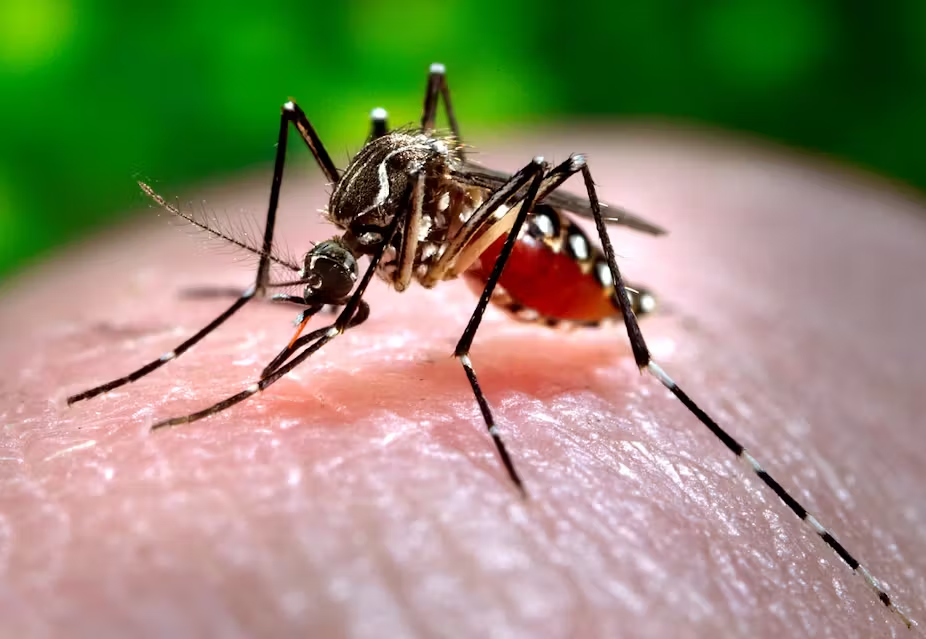
Dengue, often referred to as break-bone fever, is a viral infection transmitted to humans through the bite of infected mosquitoes, particularly in tropical and subtropical regions. The World Health Organization states that many infected individuals do not exhibit symptoms, but those who do may experience high fever, severe headaches, body aches, nausea, and rash.
Key Facts About Dengue Fever
Transmission: Dengue is spread through the bite of infected mosquitoes.
Risk: Nearly half of the global population is at risk, with 100-400 million infections annually.
Prevalence: Most common in urban and semi-urban areas of tropical and subtropical climates.
Severity: While often mild or asymptomatic, dengue can sometimes lead to severe illness or death.
Prevention: Focuses on controlling mosquito populations, as there is no specific treatment for dengue.
Symptoms of Dengue Fever
Symptoms usually appear 4-10 days after infection and can last for 2-7 days. They include:
– High fever (40°C/104°F)
– Severe headache
– Pain behind the eyes
– Muscle and joint pain
– Nausea and vomiting
– Swollen glands
– Rash
Risk Factors for Severe Dengue
Individuals with a second dengue infection are at higher risk for severe symptoms, which can include severe abdominal pain, persistent vomiting, rapid breathing, bleeding gums or nose, fatigue, restlessness, and blood in vomit or stool. These symptoms often emerge after the fever subsides.
Treatment
There is no specific treatment for dengue. Pain management, usually with acetaminophen, is the primary approach. Severe cases often require hospitalization.
Global Picture
Dengue cases have surged globally, with WHO reporting an increase from 505,430 cases in 2000 to 5.2 million in 2019. The highest number of cases was recorded in 2023, with over 6.5 million cases and more than 7,300 deaths.
Transmission Dynamics
The dengue virus is primarily transmitted by Aedes aegypti mosquitoes, but Aedes albopictus has also been noted as a vector, particularly in Europe. The virus can also be transmitted from pregnant mothers to their babies and through blood products or organ donations.
Risk Factors
Urbanization, climate change, and human behavior, such as water storage practices and mosquito bite prevention, influence dengue transmission. Effective vector control and community engagement are crucial in preventing outbreaks.
Ghana’s Recent Alert
The Ghana Health Service (GHS) issued an alert on July 14, 2024, after confirming nine dengue cases in the Eastern Region. The GHS emphasized the need for enhanced surveillance and laboratory confirmation of suspected malaria cases, as unusual clinical malaria cases had prompted further investigation. The Noguchi Memorial Institute for Medical Research confirmed the dengue cases, leading to a detailed outbreak investigation by a team of entomologists and epidemiologists.
Public Awareness and Prevention
The GHS urges public awareness campaigns and preventive measures, including using mosquito nets, eliminating standing water, and proper waste management. Adhering to these practices is vital in curbing the spread of dengue fever.
 GhArticles.com Every News in Detail
GhArticles.com Every News in Detail



